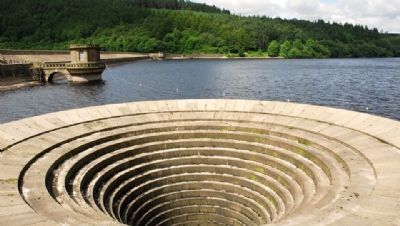UK water firms join global funding alliance helping sector to champion green innovation

9 April 2019, source edie newsroom
UK-based water companies Severn Trent and United Utilities are among a group of 10 global water firms to have jointly launched a new innovation fund aimed at supporting green solutions to the sector’s biggest sustainability challenges.
The founding water firms are urging other companies to join the Fund, after its launch this morning (9 April)
Called the World Water Innovation Fund, the platform will see the companies work collaboratively to find, develop and champion a string of new green technologies which have the potential to help the private sector protect water against challenges such as climate change and population growth. Products, concepts and systems which help to improve water access and sanitation, or to make repair works such as fixing leaks more efficient, will also be targeted.
The companies contributing to the fund are Severn Trent and United Utilities in the UK; DC Water and LADWP in the US; Agea in Brazil; and Hunter Water, Melbourne Water, Yarra Valley Water, South East Water and City West Water in Australia.
Each of the businesses will commit resources and investment to a central fund under the project, with Severn Trent having disclosed that it will make a £5m contribution and the total amount of funding yet to be announced. This funding will be split between facilitating large-scale trials of emerging technologies and creating seed-funds to accelerate wider water innovation across the world.
The founders of the Fund claim that the innovations it supports will “directly benefit” at least 50 million customers worldwide. In order to ensure that it encourages wider progress beyond the reach of the 10 founder businesses, all findings of trials under the fund will be published publicly.
“Water scarcity, often triggered by climate change and population growth, is a huge challenge for the water industry across the world, which is why today’s (9 April) launch is so important,” Severn Trent’s chief executive Liv Garfield said.
“By creating this Fund, we’ve joined forces with like-minded companies from across the globe who recognise the challenges we face and who want to do things differently, to find new ways of working, and to leave a lasting water legacy for future generations.”
The launch of the Fund was welcomed by UK industry regulator Ofwat’s senior director John Russell, who said it could help create “the right culture for innovation to thrive”.
“The challenges facing the water sector are profound, long-term and global, and innovation is vital to meeting the challenge of significant leakage reduction,” Russell said.
“That is why it is so important to see companies across the world pooling resources and ideas. This is a step towards embracing that collaboration culture to foster a global response which is creative, ambitious, and able to solve problems and create new possibilities.”
Troubled waters?
The UN estimates that 1.2 billion people, or one-fifth of the world’s population, are suffering from the adverse effects of water scarcity. Similarly, The Global Water Institute estimates that 700 million people in 43 countries suffer from the effects of water scarcity, with UNESCO predicting that this figure will rise to 1.8 billion by 2025 if no action is taken.
While the issue may seem like one which will only affect developing nations in some of the warmest regions, around 63% of cities globally are now warning of future risks relating to water supply, many of which will be exacerbated by rising temperatures and growing populations. Indeed, warnings that England could run short of water within the next 25 years have now been issued by the Environment Agency (EA), while London is set to experience a daily water deficit of 520 million litres by 2050 .
In response to the issue, UK water companies have undertaken a number of sustainability initiatives in recent times. Last September, for example, nine of the UK’s largest water firms, along with 20 NGOs, joined together to create a set of ” shared principles ” to improve the health of the environment. These cover a huge range of environmental issues – from tackling pollution by “unflushables” like baby wipes, to natural water filtering, to working with farmers on more environmentally friendly agricultural techniques.
And to incentivise further action, Blueprint for Water, part of the Wildlife and Countryside Link – the largest environment coalition in England – publishes sustainable water “ scorecards ” on an annual basis, ranking water utilities on their efforts to conserve nature and promote social sustainability.
Sustainable water stewardship is also an issue which has attracted the attention of the investment community. In total, 2,025 of the world’s largest corporations, which collectively represent more than $20.3trn in market capital, are now reporting their water footprint through to their investors through CDP, up from 1,200 just three years ago, and the world’s first sustainable water bond was launched by The World Bank last year .
These are promising first steps, but Global Water Intelligence (GWI) estimates that total worldwide investments into water infrastructure must reach £342bn ($449bn) each year between 2018 and 2030 if Sustainable Development Goals 6, clean water and sanitation, and 14, life below water, are to be achieved by the 2030 deadline.
For more information on SDGs 6 and 14 , and how businesses are working to drive progress towards their agendas, you can read edie’s ‘SDGs in Action’ case study series by clicking here .
